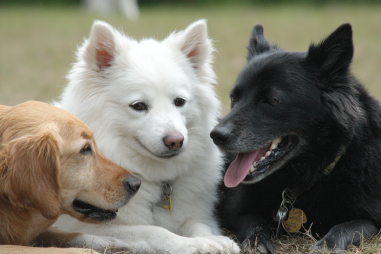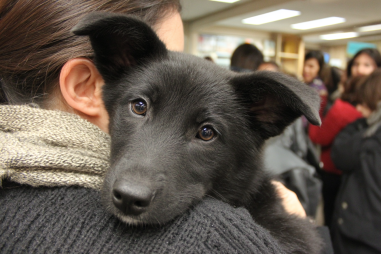Schipperkes are charming and energetic little dogs known for their lively personalities and keen senses. One of their distinct traits is their tendency to be vocal. While barking is a natural form of communication for Schipperkes, it can sometimes become excessive or problematic for owners and neighbors. Understanding why Schipperkes bark and learning ways to manage their vocal tendencies can help maintain a peaceful home environment while honoring your pet’s instincts.
Reasons Why Schipperkes Bark
Schipperkes are alert and curious by nature. Their barking often serves as a way to communicate or to express emotions. Some common reasons why Schipperkes bark include:
- Alerting and Guarding: Schipperkes are often called “little watchdogs” because they are quick to alert their owners to any unfamiliar sights, sounds, or movements. This vigilance means they will bark to warn you of potential intruders or unusual activity.
- Excitement and Playfulness: When excited or playful, Schipperkes may bark to express their joy. This type of barking is usually accompanied by wagging tails and energetic behavior.
- Attention Seeking: These dogs thrive on interaction and may bark to get your attention, especially if they feel neglected or bored.
- Anxiety or Stress: Separation anxiety or fear can trigger barking as a coping mechanism. If left alone for long periods without stimulation, Schipperkes may develop noisy habits.
- Communication with Other Dogs: Sometimes barking is a way for Schipperkes to communicate or establish dominance when meeting other dogs or animals.
Signs of Problematic Barking
While some barking is normal, it becomes problematic when it interferes with daily life or causes distress. Recognizing signs of problematic barking helps you take steps to address the issue:
- Excessive Duration: Barking that lasts for extended periods or repeatedly throughout the day can be overwhelming.
- Unprovoked Barking: Barking without an obvious stimulus or reason may indicate boredom, anxiety, or habit.
- Disrupts Peace: When your Schipperke’s barking disturbs neighbors or household members consistently.
- Signs of Distress: Barking accompanied by pacing, destructive behavior, or withdrawal could indicate emotional or health issues.
Training Techniques to Reduce Barking
Training plays a crucial role in managing a Schipperke’s barking. Here are some effective techniques:
Positive Reinforcement
Rewarding your dog when they remain quiet reinforces calm behavior. Use treats, praise, or affection immediately when your Schipperke stops barking on command or doesn’t react loudly to stimuli.
Teach a “Quiet” Command
Begin by allowing your dog to bark a few times, then calmly say “Quiet” and hold a treat near their nose. When they stop barking, give the treat. With consistency, your Schipperke will learn to associate the command with stopping barking.
Desensitization to Triggers
If your dog barks at specific triggers like the doorbell or passing strangers, gradually expose them to these stimuli at a low intensity, rewarding calm reactions. Slowly increase exposure as the dog grows accustomed without barking.
Redirect Attention
When your Schipperke starts barking, redirect their attention to a more productive activity like obedience commands, a quick game, or fetching a toy. This helps break the barking cycle and refocuses their energy.
Environmental Management
Modifying your Schipperke’s environment can greatly reduce barking:
- Limit Visual Stimuli: Block windows or create barriers to minimize outside distractions that provoke barking, such as pedestrians, other dogs, or cars.
- Consistent Routine: Maintain a daily schedule for walks, play, and feeding to reduce anxiety and unpredictability, which can lead to excessive barking.
- Exercise and Mental Stimulation: Provide ample physical exercise and puzzles or training sessions to keep your dog mentally and physically satisfied.
- Safe, Quiet Space: Create a comfortable resting area where your Schipperke can retreat and feel secure during times of stress or overstimulation.
Use of Toys and Distractions
Engaging your Schipperke with toys and distractions is a great way to reduce boredom and restless barking:
- Interactive Toys: Puzzle feeders, treat-dispensing toys, and chew toys can keep your dog mentally engaged for extended periods.
- Regular Playtime: Scheduled play sessions with fetch, tug-of-war, or training games burn excess energy that might otherwise be released through barking.
- Calming Aids: Consider calming products like autogenic music, pheromone diffusers, or anxiety wraps to reduce stress-induced barking.
When to Seek Professional Help
If your Schipperke’s barking remains uncontrollable despite your best efforts, or if it’s linked to signs of anxiety, aggression, or health concerns, it may be time to consult a professional. A qualified dog trainer or behaviorist can:
- Assess the root causes of excessive barking.
- Create customized training and behavior modification plans.
- Provide guidance on safe and effective tools or interventions.
- Help with managing related issues such as separation anxiety or fear.
Veterinary advice is also important if you suspect medical problems contributing to vocal behavior.
Embracing Your Schipperke’s Vocal Nature
While Schipperkes are naturally vocal dogs, their barking is a form of communication that should be respected rather than suppressed. By understanding why your Schipperke barks and using positive, consistent strategies, you can manage excessive noise without stifling your dog’s personality. A happy, well-exercised, and mentally stimulated Schipperke is likely to be a quieter, more balanced companion.







